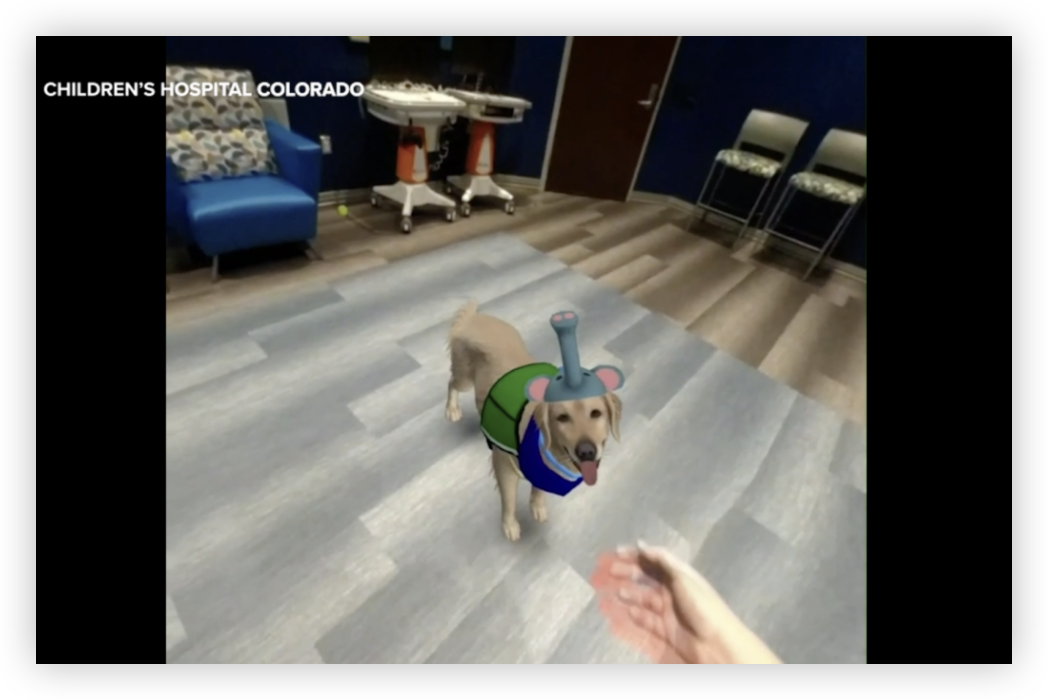Virtual Games Transform Real Treatment: This Children's Hospital Uses Gaming Tech to 'Heal' Kids!

White hospital corridors, cold instruments - these are always associated with fear. But have you heard that someone is actually using a playground
to make children love the hospital? This sounds quite intriguing - yes, at Denver's Colorado Children's Hospital, a Gaming Technology Clinical Room
has quietly opened a new window for pediatric healthcare.
Technology isn't just a cold future trend, it can also be a gentle force in the present. In this room, every treatment becomes a transformation adventure, making pain disappear into children's imaginations of fantasy. Virtual Reality (VR) and games are no longer just children's entertainment companions, but have become keys helping them maintain hope in adversity.
Let's take a look at a short video:
The "Magical Leap" from Resistance to Enjoyment
Hospitals are typically places full of tension and anxiety - especially for young children. While traditional treatment methods are effective, they often cause pain and resistance. The emergence of this "Technology Gaming Clinical Room" means the medical journey is about to be "patched" with a novel version.
The department's purpose is very clear - it's not simply about "distraction," but about "restructuring" the entire treatment process with deeper immersion. Here, games aren't an escape shelter, but a "co-treatment tool" that they can participate in, control, interact with, and run parallel to their treatment.
Perspective: Games ≠ Play, But a New "Treatment Language"
We often see various reports about "technology changing healthcare," but bringing games into children's wards is both technical and humane practice. It not only lets children happily "play," but helps them use imagination and sense of control to find another way to express themselves during treatment.
The gaming technology department isn't just a flashy creative experiment, it's a purposeful practical solution. It attempts to answer a major question: When children can be happy during treatment, who is really being comforted?
Main Text: Medical Miracles from "Patient" to "Creator"
Walking into this gaming technology clinical room, you might not be greeted by cold medical equipment, but an interactive space closely connected to future technology. With doctors' assistance, children wearing VR helmets enter a world full of adventure and fantasy. They control their "virtual characters," immersed in stories, while the pain in reality seems to be transported to a parallel universe.
Imagine you're a child undergoing serious treatment. Facing daily treatment discomfort, you can't just walk away. But in the "game ward," you can become a brave warrior, leaping up to dodge monsters in the virtual world; or become a music producer, playing your own melody in the digital world. Here, there's no time when pain isn't relieved, only their two-way journey with the game.
This treatment method isn't just emotional comfort for children, but a new role in clinical treatment: game designer, player, doctor
, three parties building an unimaginable bridge together. More importantly, it opens a new dimension of thinking about "possibilities" for them. One child even said: "I used to think being sick was boring, now I think, if I were a game designer, would everything in this room be under my control?"
Accompanied by games, childlike innocence remains. This might also be the warmest prescription for saying goodbye to fear in the long journey of treatment.
The Intersection of Technology and Humanity
Future medical diagnosis and treatment is changing from "medicine as process" to "medicine as experience." When we talk about innovation, it's not just about introducing new equipment, but about changing attitudes toward people - toward patients, especially children. Gaming technology is gradually "restructuring" those preconceptions about pain.
Have you ever thought about what games can do for you, or even for the whole society, whether in immediate treatment or the distant future? Perhaps you haven't noticed, but this small attempt at "games + healthcare" will "land" in more fields, opening more gentle yet powerful changes.
分享文章
3篇相关文章
Meta Quest Hand Tracking 2.4: Your Hands Finally Keep Up With Your Brain in VR
2025-12-18
Meta Quest’s Hand Tracking 2.4 update supercharges the high-speed mode for smoother, more accurate gesture control. Here is a deep dive into its three core technical upgrades and what they mean for VR immersion.
No More Poking Virtual Keyboards: VR Finally Gets a Truly Satisfying Input Upgrade
2025-12-18
Typing in VR has always been a pain. The upcoming Yap voice keyboard lets you ‘talk’ your way through everything in virtual worlds.
VR Karting: When Virtual Meets Reality, The Next Racing Era Arrives
2025-11-17
French company EVA fuses real kart driving with virtual worlds to deliver an unprecedented immersive racing experience and redefine entertainment.